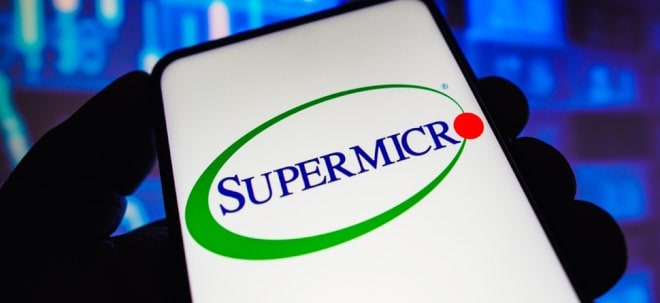Innovent announces the Phase 3 Clinical Study DREAMS-1 of Mazdutide in China were Orally Presented at ADA 85th Scientific Sessions
SAN FRANCISCO and SUZHOU, China, June 24, 2025 /PRNewswire/ -- Innovent Biologics, Inc. (Innovent) (HKEX: 01801), a world-class biopharmaceutical company that develops, manufactures and commercializes high-quality medicines for the treatment of oncology, autoimmune, cardiovascular and metabolic, ophthalmology and other major diseases, announces that the Phase 3 clinical study results for mazdutide, a dual glucagon (GCG)/glucagon-like peptide-1 (GLP-1) receptor agonist, in Chinese adults with type 2 diabetes (T2D) (DREAMS-1) were orally presented (Abstract #: 306-OR) at the 85th Scientific Sessions of the American Diabetes Association (ADA), with Dr. Lei Qian from Innovent Biologics, as the presenter. The DREAMS-1 clinical study met its primary endpoint and all key secondary endpoints in July 2024. Mazdutide demonstrated dual benefits in glycemic control and weight loss, along with comprehensive improvements in cardiovascular, renal, and metabolic indicators. These findings provide important evidence-based medical support for the use of next-generation GCG/GLP-1 receptor agonists in treating T2D. In August 2024, mazdutide's NDA for glycemic control of T2D patients was accepted by China's National Medical Products Administration (NMPA) for review. It is expected to offer a better treatment option for Chinese T2D patients soon.
DREAMS-1 (ClinicalTrials.gov, NCT05628311) enrolled 319 Chinese participants with T2D inadequately controlled by diet and exercise alone (mean age 50.4 years, mean baseline HbA1c 8.24%, mean baseline body weight 77.7 kg). Participants were randomized to receive mazdutide 4 mg, mazdutide 6 mg or placebo for 24 weeks. The primary endpoint was the change in HbA1c from baseline to week 24.
Mazdutide demonstrated robust glucose-lowering efficacy, achievingHbA1c reduction of 2.15% after 24 weeks of treatment
For the efficacy estimand, the change in HbA1c from baseline to week 24 were -1.57% and -2.15% for mazdutide 4 mg and mazdutide 6 mg, respectively, demonstrating superiority to placebo (-0.14%). At week 24, 68.6% and 87.4% of participants receiving mazdutide 4 mg and 6 mg, respectively, achieved HbA1c <7.0% compared to 10.7% with placebo. Additionally, 55.6% and 81.5% of participants receiving mazdutide 4 mg and 6 mg, respectively, achieved HbA1c ≤6.5%, compared to 4.4% with placebo.
Mazdutide demonstrated robust efficacy in both glycemic control and weight reduction
For the efficacy estimand, after 24 weeks of treatment, the percentage change in body weight from baseline to week 24 were -5.61% and -7.81% for mazdutide 4 mg and mazdutide 6 mg, respectively, demonstrating superiority to placebo (-1.26%). At week 24, 50.9% and 69.0% of participants receiving mazdutide 4 mg and mazdutide 6 mg achieved a weight reduction of ≥5%, compared to 7.3% with placebo. Additionally, 40.6% and 64.9% of participants treated with mazdutide 4 mg and mazdutide 6 mg achieved both a weight reduction of ≥5% and HbA1c < 7.0%, respectively (vs. placebo: 0%).
Improvements in multiple cardiometabolic risk factors
Mazdutide treatment also led to significant and clinically meaningful improvements on fasting glucose, self-measured blood glucose, waist circumference, blood pressure, lipids, and transaminases.
Favorable safety profile and no new safety signals observed
- Mazdutide was well tolerated, with low incidence of TEAEs leading to treatment discontinuation.
- Gastrointestinal symptoms were the most common adverse events, mostly mild to moderate severity, transient, and occurring mainly during dose escalation.
- Low incidence of hypoglycemia, and no severe hypoglycemia was reported.
- The overall safety profile was consistent with previous clinical studies of mazdutide, with no new safety signals observed.
Mazdutide is the most advanced dual GCG/ GLP-1 receptor agonist in clinical development, with two NDAs currently under review by China's NMPA:
(1) Chronic weight management in adults with obesity or overweight
(2) Glycemic control in adults with type 2 diabetes
Professor Lixin Guo, the Principal Investigator of DREAMS-1, Nanjing University Affiliated Drum Tower Hospital, said: "China has a high incidence of T2D, with 140 million adult patients, ranking first in the world. A significant proportion of these patients also suffer from overweight/obesity, cardiovascular diseases, and/or kidney diseases, making prevention and treatment a formidable challenge. There is an urgent need for more effective and safer innovative drugs. In recent years, GLP-1 receptor agonists have emerged as a superior treatment option for type 2 diabetes due to their comprehensive benefits in blood glucose control, weight management, and cardiovascular and renal health. Mazdutide, as a dual GCG/GLP-1 receptor agonist, demonstrated superior efficacy compared to placebo in glycemic control and weight reduction in the DREAMS-1 study in Chinese patients with T2D inadequately controlled by diet and exercise alone. It also showed a favorable safety profile. Additionally, mazdutide offers comprehensive benefits such as reduced waist circumference, blood pressure, and lipid levels. I am delighted to see the study results presented as an oral presentation at ADA congress and look forward to mazdutide's approval in near future, providing a new treatment option for T2D patients in China and improving their clinical outcomes."
Professor Jiajun Zhao, the Principal Investigator of DREAMS-1, Shandong Provincial Hospital, said: "In recent years, the treatment for diabetes has gradually shifted from mere blood glucose control to a 'patient-centered' approach, integrating glycemic control, weight management, cardiovascular risk factor management, and addressing cardiorenal comorbidities and complications. GLP-1 receptor agonists not only excel in glycemic control but also effectively reduce weight, making them a hotspot and frontier in metabolic disease drug development. The pivotal clinical study DREAMS-1 for mazdutide, a dual GCG/GLP-1 receptor agonist, was orally presented at ADA 85th Scientific Sessions, reaffirming its outstanding efficacy in glucose-lowering and weight reduction, multiple metabolic benefits, and favorable safety profile. We hope it will soon benefit Chinese patients with T2D."
Dr. Lei Qian from Innovent Biologics said: "I am pleased to orally present the results of DREAMS-1 at this year's ADA conference, which demonstrated its comprehensive benefits in glycemic control, weight reduction, and multiple metabolic indicators. This also reflects the outstanding research capabilities of Chinese investigators and Innovent's solid clinical development strength. The detailed results of DREAMS-1 and another Phase 3 study (DREAMS-2), which compared mazdutide with dulaglutide combined with oral hypoglycemic drugs in Chinese T2D patients, will also be published in academic journals. We hope mazdutide will soon be approved and launched, benefiting the vast number of T2D patients in need of comprehensive improvements in blood glucose, weight, and cardiovascular metabolic indicators. Innovent will continue to develop a next-generation pipeline in the cardiovascular and metabolic fields, meeting the public's aspirations for a healthier life and serving more patients."
About Diabetes
According to the 2021 global diabetes overview by the International Diabetes Federation, China leads the world in the number of patients with diabetes, with an estimated 140 million cases in 2021 and projected to reach 174 million by 2045[1]. Poor glycemic control can lead to irreversible microvascular and macrovascular complications, including reduced visual acuity, blindness, renal dysfunction, peripheral neuropathy, myocardial infarction, stroke and amputation[2]. The high prevalence of diabetes and its serious complications pose a significant threat to human health. Currently, various therapeutic approaches are available for diabetes management. In addition to controlling blood glucose, new hypoglycemic drugs are being developed to offer additional benefits such as weight loss, cardiovascular risk reduction and kidney protection[3].
About Mazdutide (IBI362)
Innovent entered into an exclusive license agreement with Eli Lilly and Company (Lilly) for the development and potential commercialization of mazdutide, a GLP-1R and GCGR dual agonist, in China. As a mammalian oxyntomodulin (OXM) analogue, mazdutide may offer additional benefits beyond those of GLP-1 receptor agonists—such as promoting insulin secretion, lowering blood glucose and reducing body weight—by also activating the glucagon receptor to increase energy expenditure and improve hepatic fat metabolism. Mazdutide has demonstrated excellent weight loss and glucose-lowering effects in clinical studies. It has also shown benefits in reducing waist circumference, blood lipids, blood pressure, blood uric acid, liver enzymes, and liver fat content, as well as improving insulin sensitivity.
Mazdutide currently has two NDAs accepted for review by NMPA, including:
- For chronic weight management in adults with overweight of obesity;
- For glycemia control in adults with type 2 diabetes.
Mazdutide is currently being evaluated in seven Phase 3 clinical studies, including:
- GLORY-1: A Phase 3 study in Chinese participants with overweight or obesity.
- GLORY-2: A Phase 3 study in Chinese participants with moderate-to-severe obesity.
- GLORY-3: A Phase 3 study comparing mazdutide and semaglutide in Chinese participants with overweight/obesity and metabolic dysfunction-associated fatty liver disease (MAFLD).
- GLORY-OSA: A Phase 3 study in Chinese participants with obstructive sleep apnea (OSA) and obesity;
- DREAMS-1: A Phase 3 study in treatment-naïve Chinese patients with T2D.
- DREAMS-2: A Phase 3 study comparing mazdutide and dulaglutide in Chinese T2D patients with inadequate glycemic control on oral antidiabetic drugs.
- DREAMS-3: A Phase 3 study comparing mazdutide and semaglutide in Chinese patients with T2D and obesity.
Among these, GLORY-1, DREAMS-1 and DREAMS-2 studies have all met their endpoints, and other four studies are currently ongoing.
In addition, several new clinical studies of mazdutide are initiated or planned, including:
- A Phase 3 trial in adolescents with obesity.
- New studies in metabolic dysfunction-associated steatohepatitis (MASH) and heart failure with preserved ejection fraction (HFpEF).
About Innovent
Innovent is a leading biopharmaceutical company founded in 2011 with the mission to empower patients worldwide with affordable, high-quality biopharmaceuticals. The company discovers, develops, manufactures and commercializes innovative medicines that target some of the most intractable diseases. Its pioneering therapies treat cancer, cardiovascular and metabolic, autoimmune and eye diseases. Innovent has launched 15 products in the market. It has 3 new drug applications under regulatory review, 4 assets in Phase 3 or pivotal clinical trials and 15 more molecules in early clinical stage. Innovent partners with over 30 global healthcare companies, including Eli Lilly, Sanofi, Incyte, LG Chem and MD Anderson Cancer Center.
Guided by the motto, "Start with Integrity, Succeed through Action," Innovent maintains the highest standard of industry practices and works collaboratively to advance the biopharmaceutical industry so that first-rate pharmaceutical drugs can become widely accessible. For more information, visit www.innoventbio.com, or follow Innovent on Facebook and LinkedIn.
Statement: Innovent does not recommend the use of any unapproved drug (s)/indication (s).
Forward-looking statement
This news release may contain certain forward-looking statements that are, by their nature, subject to significant risks and uncertainties. The words "anticipate", "believe", "estimate", "expect", "intend" and similar expressions, as they relate to Innovent Biologics ("Innovent"), are intended to identify certain of such forward-looking statements. The Company does not intend to update these forward-looking statements regularly.
These forward-looking statements are based on the existing beliefs, assumptions, expectations, estimates, projections and understandings of the management of the Company with respect to future events at the time these statements are made. These statements are not a guarantee of future developments and are subject to risks, uncertainties and other factors, some of which are beyond the Company's control and are difficult to predict. Consequently, actual results may differ materially from information contained in the forward-looking statements as a result of future changes or developments in our business, the Company's competitive environment and political, economic, legal and social conditions.
The Company, the Directors and the employees of the Company assume (a) no obligation to correct or update the forward-looking statements contained in this site; and (b) no liability in the event that any of the forward-looking statements does not materialise or turn out to be incorrect.
References: [1]. Sun H, Saeedi P, Karuranga S, et al. IDF Diabetes Atlas: Global, regional and country-level diabetes prevalence estimates for 2021 and projects for 2045 [published correction appeals in Diabetes Res Clin Pract. 2023 Oct; 204: 110945]. Diabetes Res Clin Pract. 2022; 183: 109119. doi: 10.1016/j.diabres.2021. 109119 [2]. Gregg EW, Sattar N, Ali MK. The changing face of diabetes complications. Lancet Diabetes Endocrinol. Published online 2016. doi: 10.1016/S2213-8587 (16) 30010-9 [3]. Nauck MA, Quast DR, Wefers J, Meier JJ. GLP-1 receptor agonists in the treatment of type 2 diabetes-state-of-the-art. Mol Metab. Published online 2020. doi: 10.1016/j.molmet.2020. 101102 |
![]() View original content to download multimedia:https://www.prnewswire.com/news-releases/innovent-announces-the-phase-3-clinical-study-dreams-1-of-mazdutide-in-china-were-orally-presented-at-ada-85th-scientific-sessions-302489772.html
View original content to download multimedia:https://www.prnewswire.com/news-releases/innovent-announces-the-phase-3-clinical-study-dreams-1-of-mazdutide-in-china-were-orally-presented-at-ada-85th-scientific-sessions-302489772.html
SOURCE Innovent Biologics


